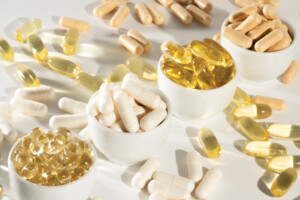With a broad range of ages using them, cognitive health supplements are made versatile to stay relevant with consumers.
“I think we’ll continue to see delivery methods increasingly match customer needs,” said Cheryl Myers, chief of scientific affairs and education at Wisconsin-based EuroPharma, Inc. “For example, there are many older individuals (and some not-so-old individuals) who have a difficult time swallowing capsules or tablets. Powder form supplements that are easily mixed with drinks or foods are really the best in those cases. However, we tend to see the best response from customers with very standard kinds of supplements, including tablets and capsules.”
Dosage levels, ideally, should be simple and easy to remember, she added. “For example, our CuraMed 750 delivers 500 mg of curcuminoids per soft gel. Taking just one of them twice daily provides an excellent, clinically validated dosage. But of course, depending on the seriousness of an individual situation, increased dosages, maybe for the first month, are always an option. The beauty of natural medicines for cognitive conditions is that you don’t have issues with side effects as you might for conventional medications.“
Another potential benefit of curcumin, and one that also relates to Alzheimer’s, Myers noted, is that it may help pre-diabetes from becoming full-blown diabetes. “The connection to Alzheimer’s is that high blood sugar levels create intensive inflammation in the brain. In fact, in one study, 25 percent of those with high blood sugar and actual diabetes developed Alzheimer’s. Even just having high blood sugar in the ‘normal’ range still led to an 18 percent increased risk of dementia.”
Aside from curcumin, vitamin D directly affects our cognitive health and abilities, Myers pointed out.
“By the time we’re 65 years old, our ability to naturally synthesize vitamin D from sunlight declines by up to 60 percent,” she said. “Compared to people who have optimal levels of vitamin D, low levels of vitamin D at age 65 means you are twice as likely to experience mental decline. In fact, a Dutch study found that patients with Alzheimer’s disease but high serum levels of vitamin D3 scored significantly higher on cognitive testing than those with low levels of the nutrient.”
Ruby Roberts, senior operations manager with Oxylent/Vitalah in California added that dosing issues might be attributed to the BBB (blood brain barrier), “which is by far the greatest hurdle in supplement delivery. Companies like Kyowa, have clinically tested ingredients like Cognizin, a branded form of citicoline, a naturally occurring nutrient found in the brain. Citicoline increases an important substance in the brain called phosphatidylcholine, which is critical for healthy brain function.”




![[Extra! Extra!] Talking Heart Health With Carl Germano CNS, CDN](https://vitaminretailer.com/wp-content/uploads/2024/01/Heart-Health-300x200.jpg)







